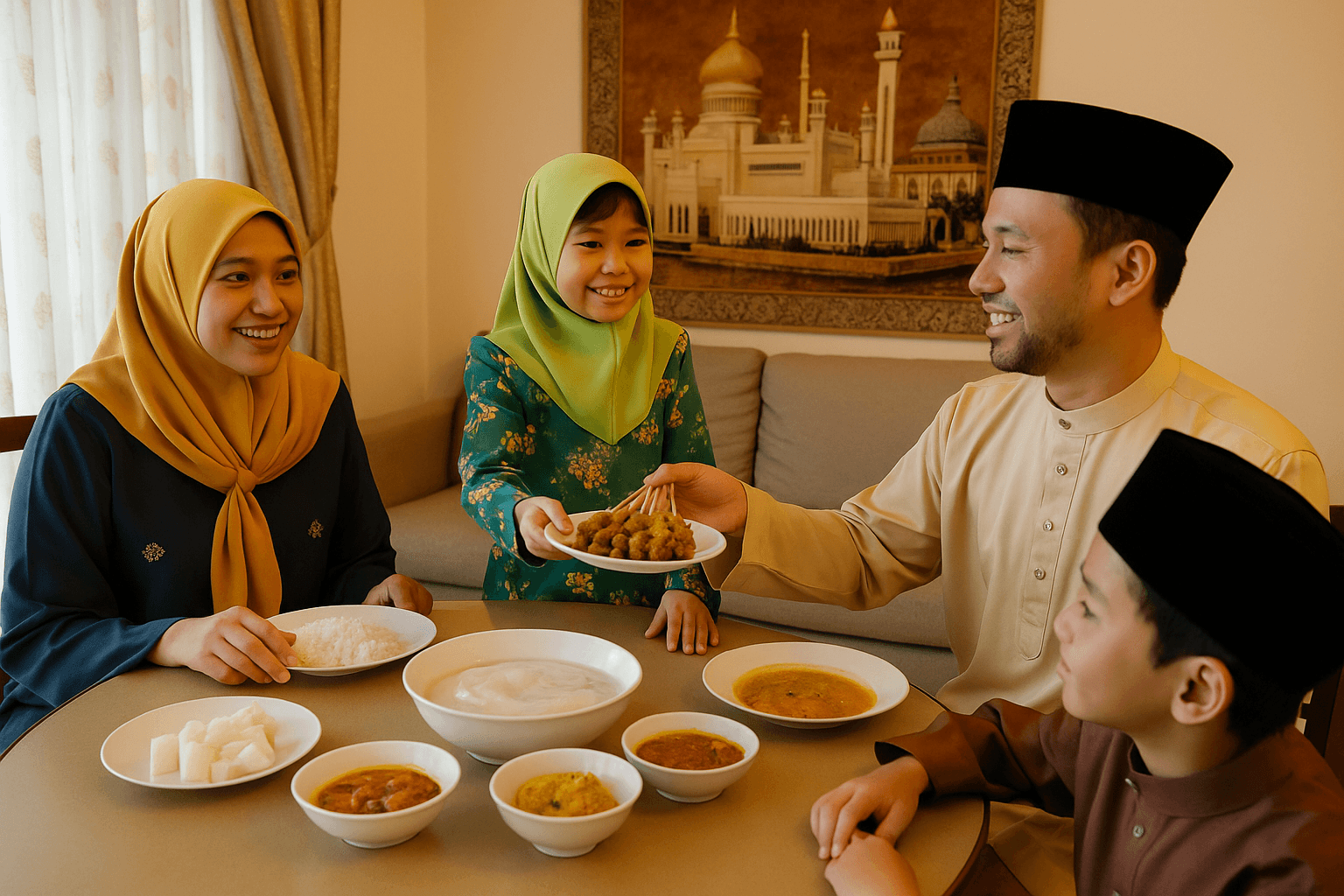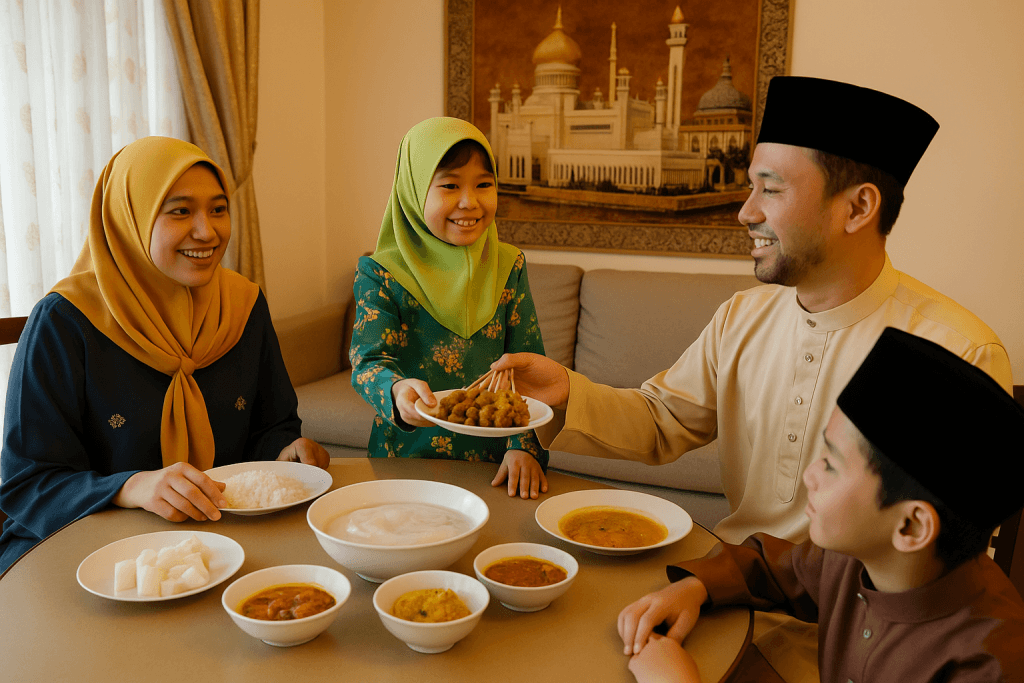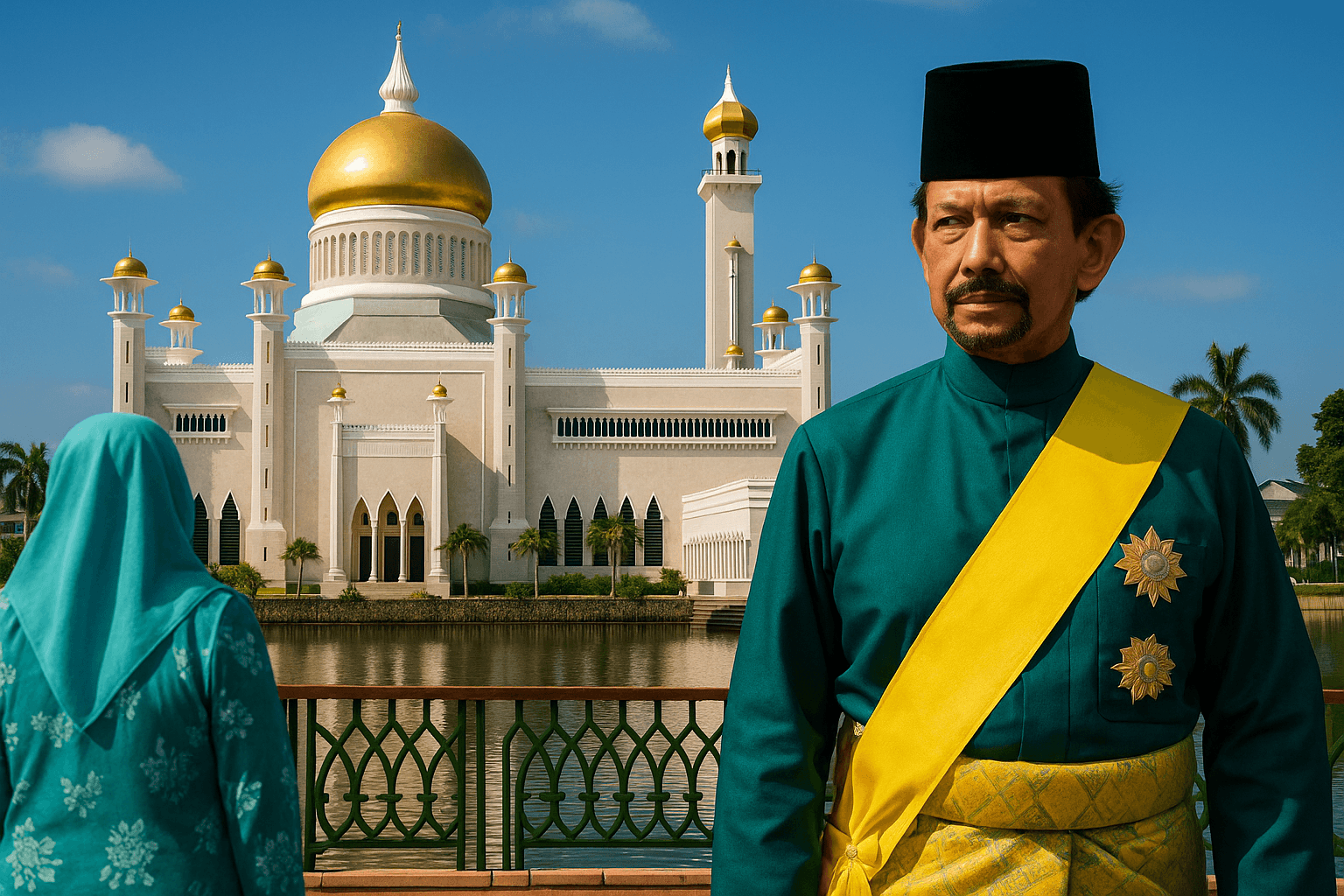The nation of Brunei, located on the island of Borneo, is a small yet culturally rich country where tradition and modernity blend in unique ways. Among the key elements that define Brunei is its strong social fabric, rooted in the values of Islam, the Malay Islamic Monarchy philosophy, and deeply cherished community practices. To understand the identity of this nation, one must explore the Customs and Social Life in Brunei, which reflect not only the historical journey of its people but also their aspirations in a modern world.
The cultural framework is built upon Malay traditions, Islamic teachings, and the monarchy that shapes national identity. The daily life of Bruneians reveals respect for elders, strong family bonds, communal celebrations, and religious observances. This social environment is further complemented by hospitality, etiquette, food culture, festivals, and artistic traditions. In this comprehensive exploration, we will analyze the customs, values, social interactions, and cultural expressions that form the vibrant society of Brunei.

Historical Foundations of Social Life
Malay Islamic Monarchy as a Cultural Pillar
The philosophy of Malay Islamic Monarchy, locally known as MIB, serves as the guiding principle of the country. It provides the cultural backbone of the Customs and Social Life in Brunei. The monarchy ensures continuity of traditions, while Islam regulates moral and social behavior. Malay heritage adds depth through language, arts, and customary practices. Together, they sustain the distinctive Bruneian way of life.
The Influence of Islam
Religion has shaped Bruneian society for centuries. Islamic practices govern daily rituals, prayer times, and festivals. Sharia principles inspire modesty, generosity, and communal unity. The presence of mosques as central spaces in towns and villages reflects the deep spiritual foundation of Customs and Social Life in Brunei.
Family and Community Structure
Family Bonds
In Brunei, the family is the cornerstone of social structure. Respect for parents and elders is ingrained from childhood. Large extended families are common, and gatherings play a significant role in maintaining strong connections. Decisions are often made collectively, with deference to elders.
Gender Roles and Responsibilities
While traditional roles remain influential, education and modern values have expanded opportunities for women. In the Customs and Social Life in Brunei, women participate actively in education, entrepreneurship, and cultural preservation, balancing tradition with progress.
Community Cooperation
The spirit of gotong royong (mutual cooperation) reflects Malay traditions of solidarity. Villages and neighborhoods frequently collaborate for weddings, religious events, and community projects. This sense of belonging strengthens the resilience of Bruneian society.
Religious Customs and Practices
Daily Religious Observances
Islamic rituals guide much of daily life. Five daily prayers mark the rhythm of society, while Friday congregational prayers highlight communal faith. Observing these practices is considered essential in the Customs and Social Life in Brunei.
Ramadan and Eid Celebrations
The fasting month of Ramadan is a period of reflection, family bonding, and generosity. Families gather for sungkai (breaking fast meals), and mosques are filled with evening prayers. Eid al Fitr and Eid al Adha are celebrated nationwide with joy, visiting relatives, and sharing food, symbolizing unity and devotion.
Halal Practices
Food customs revolve around halal requirements. From street food to festive meals, halal guidelines reinforce the connection between everyday habits and Islamic identity.
Social Etiquette and Hospitality
Respect and Politeness
Bruneians emphasize courteous behavior. Greeting with a gentle handshake or bow, addressing elders respectfully, and using honorifics reflect the Customs and Social Life in Brunei.
Hospitality as a Value
Guests are treated with warmth and generosity. Offering food and drinks symbolizes respect. Refusing hospitality may be seen as impolite, demonstrating how deeply social interactions are tied to cultural values.
Modesty and Dress Code
Modest attire is part of everyday etiquette. While traditional Malay garments are worn during festivals and ceremonies, modest modern clothing is also common. This balance between tradition and contemporary style mirrors the evolving Customs and Social Life in Brunei.
Festivals and Cultural Celebrations
National Day
Celebrated on February 23, National Day showcases patriotism, cultural performances, and parades. It reflects unity and pride in the monarchy, strengthening national identity.
Royal Ceremonies
The monarchy plays a central role in cultural life. Royal weddings, coronations, and other ceremonies involve intricate traditions, symbolizing continuity of heritage and leadership.
Harvest Festival and Cultural Events
While Islam dominates, remnants of indigenous traditions appear in harvest celebrations and cultural exhibitions. These highlight the diversity within the Customs and Social Life in Brunei.
Food Culture and Social Dining
Ambuyat as National Dish
Ambuyat, made from sago starch, is eaten with dipping sauces and shared communally. It embodies togetherness and reflects Brunei’s culinary identity.
Shared Meals
Meals are a medium of bonding. Eating together at home or in restaurants emphasizes unity and hospitality. Popular dishes include nasi katok, satay, and kueh, each tied to customs of sharing.
Influence of Malay and Islamic Cuisine
Malay culinary traditions enriched with Islamic dietary laws define the food landscape. Cuisine is more than sustenance; it is an integral part of the Customs and Social Life in Brunei.
Arts, Music, and Cultural Expression
Traditional Arts
Weaving, silverwork, and woodcarving express Bruneian creativity. Traditional garments such as baju kurung and songkok showcase heritage.
Music and Dance
Performances such as adang adang and gendang accompany weddings and festivals. They illustrate the role of art in reinforcing community bonds.
Literature and Oral Traditions
Poetry, folktales, and proverbs remain influential, teaching moral values and sustaining collective memory in the Customs and Social Life in Brunei.
Education and Social Development
Education as a Social Value
The government prioritizes education, integrating Islamic principles with modern curricula. Schools not only teach academics but also instill respect, cooperation, and cultural pride.
Knowledge Transmission
Informal learning through family, mosques, and community elders complements formal education. Social life ensures that wisdom is passed down through generations.
Modernization and Social Change
Urbanization and Technology
Cities like Bandar Seri Begawan exhibit modern lifestyles with technology, shopping malls, and digital culture. However, traditions continue to coexist with new social dynamics.
Youth and Global Influence
Young Bruneians engage with global trends in fashion, music, and social media, yet maintain respect for customs. This duality reflects the adaptability of the Customs and Social Life in Brunei.
Balancing Tradition with Modernity
The monarchy emphasizes cultural preservation while embracing economic growth. This balance ensures that Brunei remains rooted in identity while adapting to global progress.
Role of Women in Social Life
Empowerment through Education
Women have increasingly pursued higher education, entering professional fields while contributing to family and community.
Participation in Cultural Events
From religious ceremonies to artistic performances, women play vital roles in sustaining traditions. Their involvement highlights inclusivity within the Customs and Social Life in Brunei.
Leisure, Sports, and Social Gatherings
Popular Sports
Football, badminton, and martial arts are widely enjoyed. Sporting events often double as community gatherings, reflecting unity.
Social Spaces
Coffee shops, night markets, and riverside promenades serve as meeting places where people connect, share food, and exchange ideas.
Tourism and Social Exchange
Tourism introduces cultural exchange, allowing visitors to witness firsthand the richness of the Customs and Social Life in Brunei.
Environmental and Rural Customs
Connection with Nature
Rural communities maintain strong ties with rivers, forests, and farms. Traditional fishing and farming techniques remain vital to daily routines.
Environmental Values
Respect for the environment is embedded in customs. Practices such as conserving water and avoiding waste align with both Islamic teachings and ecological sustainability.
Conclusion
The exploration of Customs and Social Life in Brunei reveals a society deeply anchored in Islamic faith, Malay traditions, and loyalty to the monarchy. Social life revolves around family bonds, respect for elders, hospitality, and communal unity. Festivals, food, arts, and daily etiquette provide vibrant expressions of culture. At the same time, modernization introduces new dimensions, with youth embracing global influences while retaining cultural values.
This fusion of tradition and progress ensures that Brunei continues to preserve its heritage while adapting to the changing world. The customs and social life not only strengthen national identity but also create a welcoming environment where harmony and respect flourish.


